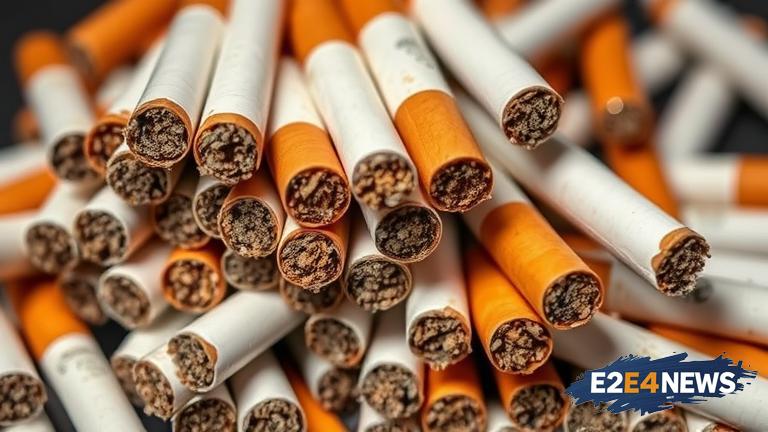A recent warning issued by Kenyan leaders has shed light on a disturbing trend in the country’s tobacco industry. According to reports, certain tobacco products being imported into Kenya have been found to be laced with drugs, posing a significant threat to public health. The leaders, including Garissa Township MP Aden Duale, have sounded the alarm on the issue, citing concerns that these contaminated products are being brought into the country by powerful individuals. Duale has stated that the tobacco products in question are being imported by ‘powers that be’, implying that those responsible for the imports are well-connected and influential. The MP has called for immediate action to be taken to address the issue, including the implementation of stricter regulations on tobacco imports. The controversy surrounding the laced tobacco products has sparked widespread concern among Kenyans, with many calling for greater transparency and accountability in the industry. The Kenyan government has been urged to take a more proactive approach in regulating the tobacco industry, including conducting regular inspections and testing of imported products. Furthermore, there have been calls for increased cooperation between law enforcement agencies and regulatory bodies to combat the illicit trade of contaminated tobacco products. The issue has also raised questions about the effectiveness of Kenya’s current tobacco control laws, with some arguing that they are inadequate and in need of revision. In response to the controversy, the Kenyan Ministry of Health has announced plans to launch an investigation into the matter, with the aim of identifying the source of the contaminated products and bringing those responsible to justice. The ministry has also warned that anyone found to be involved in the importation or sale of laced tobacco products will face severe penalties, including fines and imprisonment. As the investigation gets underway, Kenyans are being advised to be vigilant and to report any suspicious activity related to the sale of tobacco products. The controversy has also highlighted the need for greater public awareness about the risks associated with tobacco use, particularly among young people. In addition to the health risks, the issue has also raised concerns about the potential social and economic impacts of the illicit tobacco trade. The Kenyan government has been urged to take a comprehensive approach to addressing the issue, including implementing policies to reduce tobacco use and promoting alternative livelihoods for those involved in the industry. Meanwhile, the tobacco industry has come under scrutiny, with some arguing that it has a responsibility to ensure that its products are safe for consumption. The controversy has sparked a wider debate about the role of the tobacco industry in Kenya and the need for greater regulation and oversight. As the situation continues to unfold, one thing is clear: the Kenyan government must take decisive action to address the issue of laced tobacco products and protect the health and well-being of its citizens. The government must also work to prevent the importation of contaminated products and ensure that those responsible are brought to justice. Ultimately, the controversy surrounding the laced tobacco products serves as a reminder of the need for vigilance and cooperation in the fight against the illicit tobacco trade. By working together, Kenyans can help to create a safer, healthier environment for all. The issue has also sparked concerns about the potential links between the tobacco industry and organized crime, with some arguing that the illicit trade of contaminated products is often linked to wider criminal networks. As such, the Kenyan government must work to strengthen its laws and regulations to prevent the exploitation of the tobacco industry by criminal elements. In conclusion, the controversy surrounding the laced tobacco products is a complex issue that requires a comprehensive and multifaceted approach. The Kenyan government must work to address the issue through a combination of regulation, education, and law enforcement, while also promoting greater transparency and accountability in the tobacco industry.





